Ingot Maker Scrap Recycling
Coming Soon
Coming Soon
Coming Soon
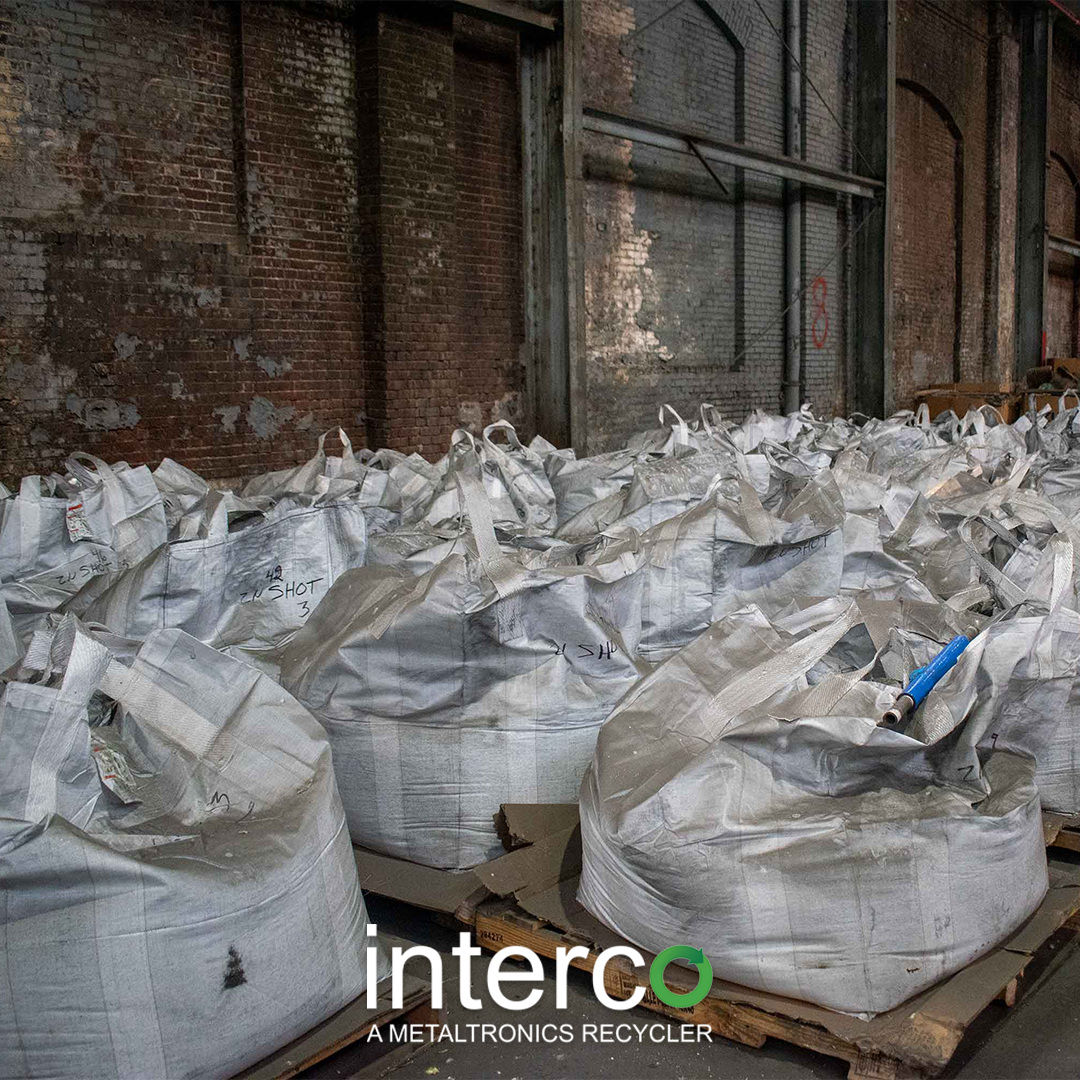
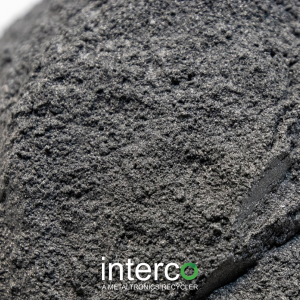
As one of the largest indoor, nonferrous metal recycling facilities in North America, Interco works closely with the galvanizing industry to recycle scrap galvanized metal. Interco contributes to the vast world of manufacturing recycling by recycling metal scrap, including aluminum, zinc, brass, and bronze. Interco’s experience and extensive partnerships allow them to maximize the return on investment when recycling nonferrous metals. Galvanizers around the world rely on Interco for scrap metal recycling.
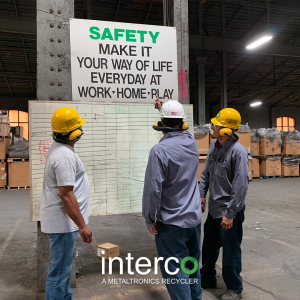
Interco recycles scrap galvanized metal at their the 450,000+ square foot recycling facility. The Interco recycling facility is comprised of seven buildings on more than 45 acres centrally located on the Illinois-side of St. Louis in the shadows of the Gateway Arch. The facility boasts a 145,000 square foot processing plant dedicated to the processing of computers and electronics with a patent-pending state-of-the-art Lithium-ion battery recycling plant. The nonferrous metal recycling processes use the remainder of the indoor facility.
Some aspects of scrap metal recycling can be dangerous. Therefore, the staff at Interco is highly qualified to safely recycle high-risk materials. Several certifications demonstrate the company’s commitment to safe and secure recycling practices:
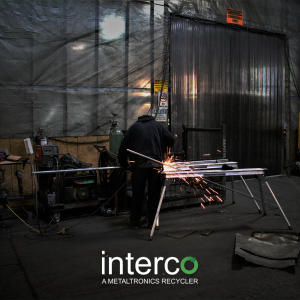
Interco processes over 12 million pounds of nonferrous material each month. The company uses several different processes to recycle nonferrous metals, including scrap galvanized metal:
Galvanizers contribute to both sides of the recycling process. During the galvanizing process, dross, skimmings, residue, overspray, dust, powder, and off-spec alloys are produced. All these items are made from zinc. Interco buys these items containing zinc, a nonferrous metal, and processes them into smelter-ready materials. In return, many galvanizers use the recycled metal to galvanize new goods.
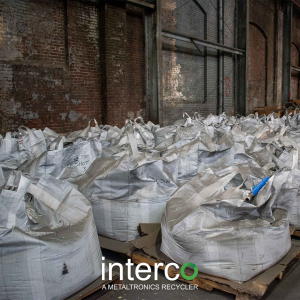
Unlike many recyclers, Interco has many years of experience in mixed load recycling of nonferrous metals and electronic scrap. The company receives approximately 50 mixed loads each day equaling one load every nine minutes. Additionally, Interco understands that many suppliers are unable to obtain the necessary inbound load minimum required by smelters, refineries, and manufacturers. When a supplier recycles metal scrap with Interco, a mixed load can contain five to ten different items. For example, items could include dross, skimmings, powder, and off-specification parts, among others.
The Interco commercial department has established contracts with smelters, refineries, manufacturers, and mills across the world. Interco sorts, grades, and processes materials into smelter-ready metals, therefore, the need for a middleman or broker is eliminated. As a result, smelters and refineries rely on Interco as a supplier to provide a recurring stream of material. Additionally, the contracts with these companies allow Interco to pay top dollar to their sellers. Therefore, the company is typically able to buy scrap galvanized metal at higher prices than other recyclers who must search for an end consumer.
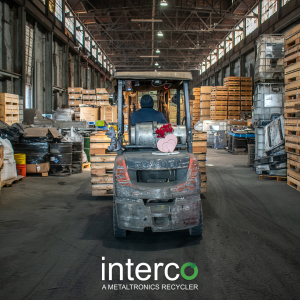
Galvanizers are some of the largest contributors to the manufacturing recycling movement, specifically of zinc. They frequently use both refined zinc and remelt zinc to support their galvanizing processes as zinc can be recycled at all stages of production and use. Approximately 80% of zinc used in galvanizing is recyclable. Galvanizers rely on zinc recycling for a sustainable source of material.
Zinc is infinitely recyclable without any loss of its original physical or chemical properties. Zinc recovered from the galvanizing process as well as outdated galvanized products, play an important role in sustainability. Using recycled zinc results in a reduction in energy use, lower emissions, and minimized waste disposal. All of which are important for both company bottom lines and the environment.
Interco specializes in the placement of smelter-ready materials catering to a broad array of industrial, dealer, and government organizations. The company ships nonferrous scrap worldwide utilizing established partnerships with end consumers in the United States, Europe, Latin America, and Asia. As a result, galvanizers all over the nation rely on Interco to recycle metal scrap.
Coming Soon
Coming Soon
Coming Soon
Coming Soon
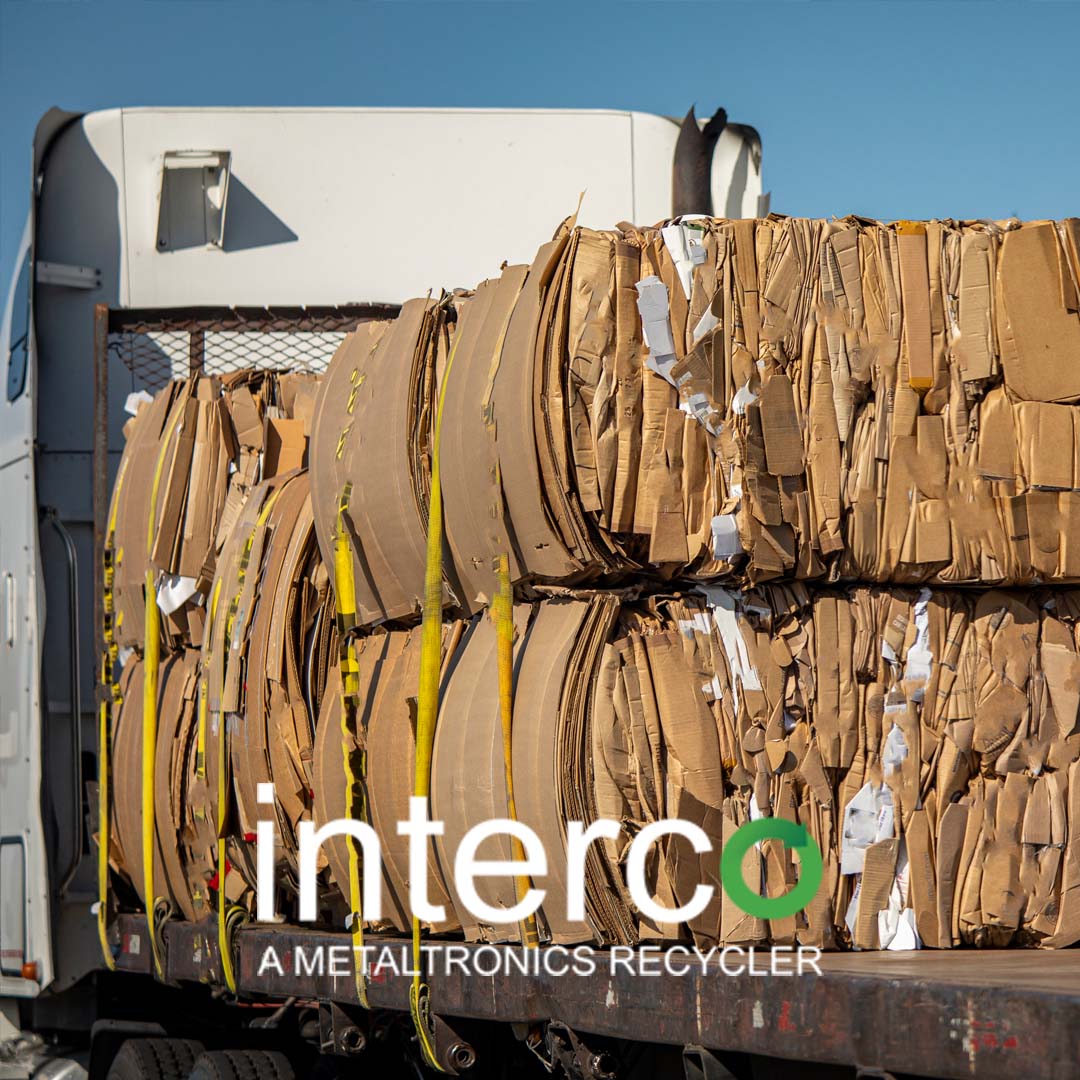
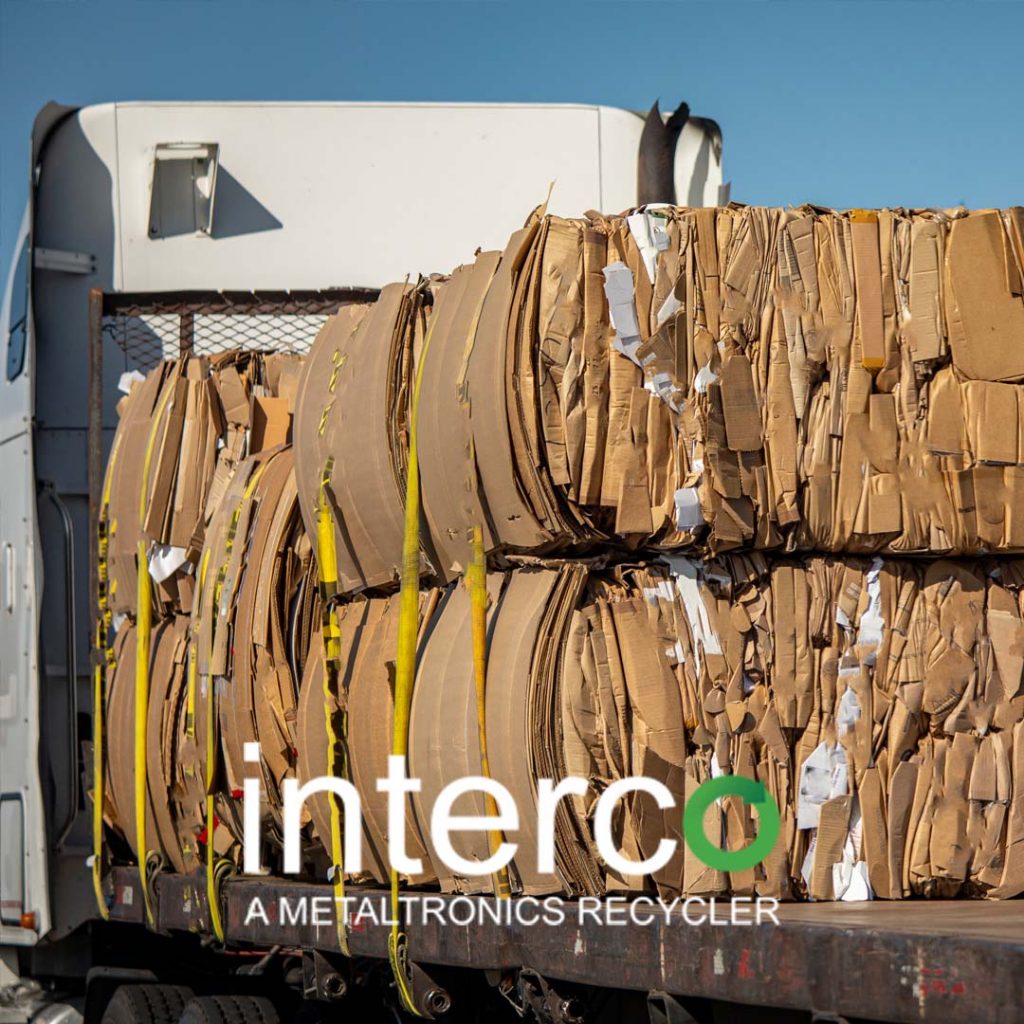
Oftentimes scrap material must be transported by flatbed due to its size and/or weight. Deploying a flatbed trailer offers access to all four sides of the trailer rather than just the end with a van trailer or the top with an open-top trailer like a dump or gondola. Interco often receives large commercial and industrial equipment such as motors or large machines and equipment before they are fully disassembled for recycling. Unloading heavy scrap material requires heavy duty equipment and coordination. Interco maintains several heavy-duty forklifts, excavators, trackhoes, and a crane to unload the heaviest scrap material from flatbeds.
In addition to using flatbeds to transport heavy scrap, many Interco suppliers utilize flatbed trailers to transport baled material. Loading baled material from the sides rather than the end gives the loader easier access and, in many cases, a larger footprint with less wasted space than with a traditional van trailer.
Demolition contractors often ship heavy scrap that can be in difficult to handle shapes and sizes by flatbed to Interco. This saves the supplier time and gives them the flexibility to not have to fully prepare the scrap into a smaller size. The Interco team often receives scrap material delivered on flatbeds one of the outdoor concrete pad unloading stations. The large Interco excavators easily unload flatbeds loaded with scrap material so it can be inspected by the Interco Quality Control team before it is prepared.
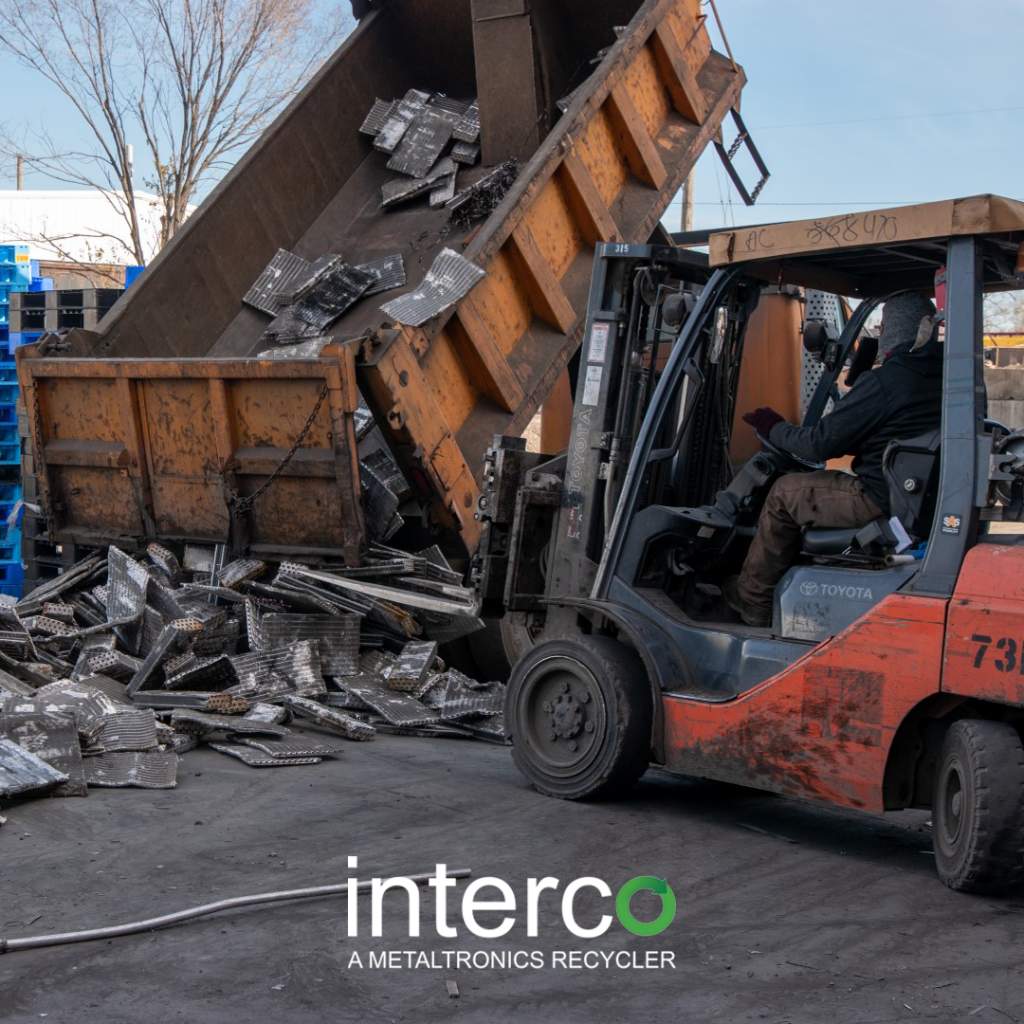
With more than 20 acres of exterior storage space consisting of two 10+ acre concrete pad loading and unloading stations, Interco unloads straight loads of scrap material received in end dump trailers and gondolas fast and efficiently. The outside storage areas are fitted with exterior docks to load and unload loose material from ocean containers. The ability to receive large amounts of material in this manner from end dumps saves the Interco suppliers loading time – they can load these open-top containers using heavy equipment like excavators, trackhoes, and backhoes rather than packaging the material into smaller containers for van trailers.
The end dumps are directed to one of the outdoor concrete pad unloading stations. There the end dump operators lift the dump box into the air and dump form the rear. The material is then moved by Interco equipment – either skid steer or trackhoe – and then sifted in real-time for contaminants. Once the Interco inspector confirms the load is free of contaminants, the driver is released, and the load is set for further inspection by the Interco Quality Control team.
The Interco team receives some straight loads of scrap material in side-dump trailers, but it is less common. The procedure for inbounding this material is the same as with the end dumps, but it must occur in a different space. Interco has the outdoor space to receive and store material originating from more than 1,200 dump trailers.
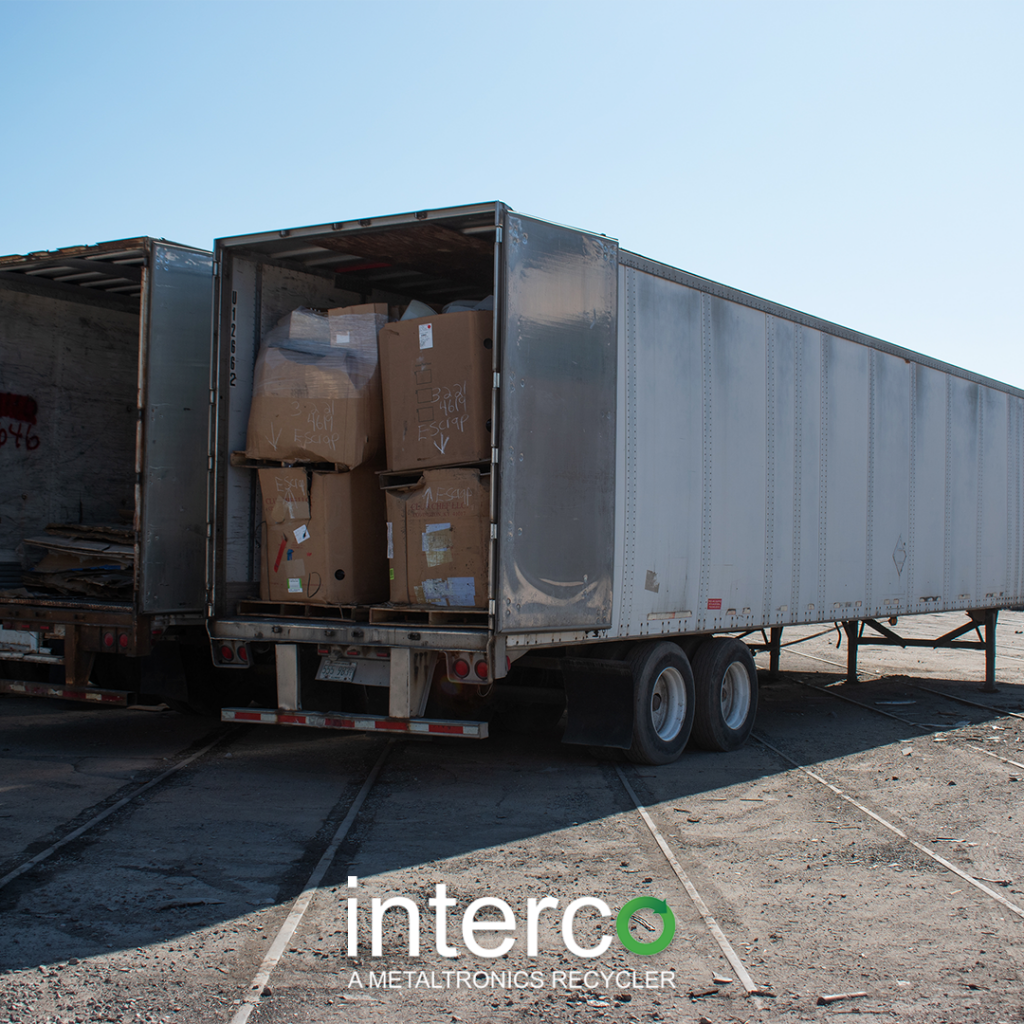
Much of the material Interco processes is delivered in straight loads by van trailer, ocean container, flatbed or end-dump. The Interco facility is comprised of six buildings (and growing) on more than 40 acres. The Interco operations team utilizes more than 30 docks for loading and unloading van trailers and ocean containers into the indoor warehouse facilities with an average turn-time of just over 35-minutes.
The company receives straight loads of loose material most often in end dumps and ocean containers. The end dumps are unloaded on one of two 10+ acre exterior concrete pad unloading stations, graded, sorted and separated into outdoor bins before being repackaged if necessary, for the appropriate industrial consumer. The ocean containers are either unloaded at one of eight outdoor docks using skid steers or other equipment.
With the ongoing company growth and facility expansions over the past five years, Interco can receive up to 55 straight loads – nearly 1,000 metric tons – on a given day.